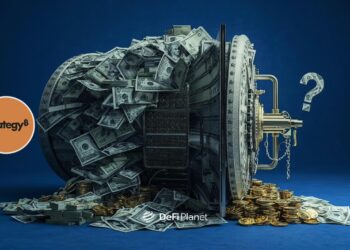Bhutan, a small Himalayan country, is ranked 108th in the 2024 Index of Economic Freedom, with a score of 55.4, placing it in the “mostly unfree” category. What that simply means is that the country’s economy is in dire straits in terms of regulatory efficiency, trade freedom, and investment openness.
However, it appears that Bhutan is exploring an unconventional economic strategy with Bitcoin mining, as it is trying to position itself as a potential powerhouse in that industry. Currently, the country operates five large crypto mining centres, with plans to launch a sixth in early 2024.
The country’s vast hydropower resources make it an ideal environment for low-cost Bitcoin mining. It seems the Bhutani government feels that it could leverage this to bolster financial independence and strengthen its economic infrastructure. This strategy could potentially alleviate some of Bhutan’s economic challenges by fostering growth and technological advancement. Or could it?
Could Bitcoin Mining Help Bhutan Become Economically Independent?
Possibly, yes.
Bhutan’s economy is facing serious problems. Its currency, the Ngultrum, is pegged to the Indian Rupee, so it is vulnerable to fluctuations in the Indian currency, especially against the U.S. dollar.
Rising U.S. Treasury yields and a strong dollar have put pressure on the Rupee, which risks falling below the 84-mark against the dollar. This is troubling for Bhutan, which saw its foreign reserves drop from $833 million in June 2022 to $574 million by June 2023, with a trade deficit of Nu 19.24 billion recorded in Q1 2024. Inflation from global factors like the Russia-Ukraine war and rising debt costs further strain the economy.

With Bitcoin, the Bhutani government is building a unique financial buffer. The country is currently the fourth-largest government holder of Bitcoin globally, ahead of El Salvador. It holds over 13,000 BTC, according to data from Arkham Intelligence. This Bitcoin reserve offers an alternative financial asset and opens doors to innovative strategies, potentially reducing Bhutan’s dependence on traditional currency systems.

A continued expansion in Bitcoin mining could even enable Bhutan to experiment with linking the Ngultrum to Bitcoin, creating a dual-currency system similar to the historic gold standard. Though this approach could limit some control over domestic economic policies, such as interest rates, it may offer economic stability, especially as global fiat currencies face value pressures.
Unemployment, particularly among young people, remains a significant challenge in Bhutan. As of Q2 2024, the country’s employment rate stands at 96.3%, with the service sector employing 45.3% of the workforce and agriculture at 41.2%. The industry sector, however, employs just 13.5%, highlighting a need for job creation in other sectors. Bitcoin mining could help bridge this gap, creating opportunities across technical roles, hardware and software maintenance, and cybersecurity—areas that could also foster a skilled workforce and potentially establish Bhutan as a regional blockchain hub.
Bhutan’s heavy reliance on hydropower exports, primarily to India, exposes it to external economic shifts. Integrating Bitcoin mining into its economic model could diversify income sources and enable Bhutan to lead in the blockchain industry. This shift may stimulate growth in fintech and digital infrastructure, fostering a robust tech ecosystem and opening the door for the country to become a hub for tech startups.
Moreover, Bitcoin mining could attract foreign investment from partners interested in blockchain and renewable energy, especially those drawn to Bhutan’s abundant hydropower resources. These investments could strengthen its technology sector, foster innovation, and bring Bhutan closer to economic independence.
Is Bitcoin Mining the Right Path for Bhutan’s Economic Future?
While Bitcoin mining holds the promise of boosting Bhutan’s economic independence, several significant challenges could undermine its viability as a solution. One major concern is the environmental impact associated with mining operations. Although Bhutan is abundant in hydropower, the energy requirements for Bitcoin mining are substantial.
If mining activities ramp up, this could place excessive pressure on the country’s hydropower resources, potentially harming local ecosystems and water supplies. Also, relying heavily on energy-intensive mining might lead to environmental issues, especially if Bhutan decides to diversify its energy sources beyond hydropower, possibly increasing its carbon footprint.
The volatility of the cryptocurrency market poses another risk to Bhutan’s financial stability. Bitcoin’s value can fluctuate dramatically over short periods. If Bhutan invests heavily in mining and the price drops suddenly, it could lead to significant financial losses, jeopardizing the country’s economic security. This overreliance on Bitcoin mining could create an economy that is vulnerable to market fluctuations, resembling the risks faced by nations that depend heavily on single commodities or crops.
While Bitcoin mining can generate job opportunities, the benefits may not be distributed evenly among the population. Individuals with access to resources, technical skills, and capital may reap the most rewards from mining operations, leaving rural communities behind and exacerbating existing socioeconomic disparities.
Furthermore, the shift towards tech-driven industries could displace workers in traditional sectors, such as agriculture, where many Bhutanese currently earn their living. This transition might create a workforce that prioritizes tech skills over manual labour, leading to further economic inequality.
For Bhutan to truly benefit from Bitcoin mining, a balanced approach that prioritizes sustainable practices, economic diversification, and social equity will be crucial. Only then can the country navigate the complexities of this emerging industry and foster a resilient economic future.
Disclaimer: This article is intended solely for informational purposes and should not be considered trading or investment advice. Nothing herein should be construed as financial, legal, or tax advice. Trading or investing in cryptocurrencies carries a considerable risk of financial loss. Always conduct due diligence.
If you would like to read more market analyses like this, visit DeFi Planet and follow us on Twitter, LinkedIn, Facebook, Instagram, and CoinMarketCap Community.
Take control of your crypto portfolio with MARKETS PRO, DeFi Planet’s suite of analytics tools.”



















